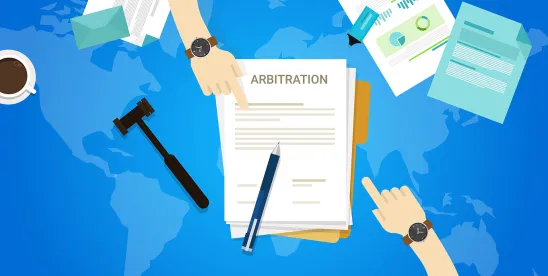As trade tensions rise, retaliatory tariffs are disrupting global supply chains—particularly in the automotive industry and other manufacturing sectors. These unexpected costs are sparking disputes over who should bear the financial burden under cross-border contracts. International arbitration is increasingly seen as the forum of choice for resolving these conflicts.
Retaliatory Tariffs Disrupting Global Supply Chains
Retaliatory tariffs—duties imposed by one country in response to another’s tariffs—have lately become a harsh reality. These tit-for-tat measures are upending global supply chains, especially in the manufacturing sector. Companies suddenly face higher import costs, squeezed profit margins, and unpredictable regulations as countries strike back with their own duties. The automotive industry is particularly exposed, as tariffs on steel, aluminum, or automotive parts drive up production costs and disrupt just-in-time supply lines. In short, retaliatory duties are injecting uncertainty at every tier of global manufacturing.
This uncertainty is not just an economic nuisance—it’s a legal flashpoint. Contracts that once made financial sense can become unprofitable or impossible to perform when an unexpected tariff hits. Common points of contention include:
- Who pays for newly imposed tariffs—supplier or buyer?
- Can pricing be adjusted when costs spike?
- Is non-performance excused under force majeure or hardship clauses?
We’ve already seen cases of suppliers threatening to halt deliveries or buyers refusing shipments because a new tariff tipped a deal into the red. Such scenarios often trigger formal disputes. Many companies are discovering too late that their agreements didn’t fully account for politically driven tariff shocks. In this turbulent landscape, businesses need a robust way to resolve disputes fairly and efficiently—and so they are increasingly considering international arbitration.
Why International Arbitration Works
International arbitration offers a neutral, enforceable, efficient, confidential, and competence-driven way to resolve these disputes:
- Neutrality. Unlike court litigation, where you might end up suing or being sued by a foreign partner in an unfamiliar legal system, arbitration provides a neutral forum agreed upon by both parties. Companies can avoid the “home court” advantage that one side would have in its local courts. In arbitration, the dispute is heard by an independent tribunal, often with arbitrators of neutral nationalities. This level playing field is crucial when a tariff dispute pits businesses from different countries against each other.
- Enforceability. Another major advantage is enforceability. An arbitration award (the final decision of the arbitrators) can be enforced almost anywhere in the world, thanks to a treaty called the New York Convention. Over 170 countries—including the U.S., EU nations, China, Mexico, and many others—are signatories to the New York Convention, which obligates their courts to recognize and enforce foreign arbitral awards. This means if a manufacturer wins an arbitration against an overseas supplier, the award can be taken to the supplier’s home country and converted into a local court judgment for payment. Such global reach is not guaranteed with a normal court judgment, which might not be enforceable abroad. For businesses facing losses from a tariff dispute, knowing that any resolution will hold up internationally can be a huge relief.
- Efficiency: International arbitration is also typically faster and more flexible than litigating through court systems in multiple countries. Procedural rules can be streamlined in arbitration, which can significantly speed things along. There is only a limited right to appeal. Many arbitral institutions have expedited rules, and some allow the parties to resolve their disputes remotely via Teams or Zoom.
- Expertise: The fact that parties can select arbitrators with industry experience can also help to resolve disputes more quickly than in court. An arbitrator who understands customs duties, supply chains, manufacturing timelines, the auto industry, and standard international commercial terms will grasp the issues more quickly than most judges and juries. Arbitrators with relevant expertise can expeditiously determine whether a dispute can be resolved with money damages, or whether it instead should be resolved with emergency interim relief such as a temporary restraining order or preliminary injunction, both of which arbitrators typically have the power to award.
- Confidentiality: Unlike litigation in court, arbitration proceedings are private and confidential by default, which helps companies manage sensitive commercial issues outside the spotlight.
Practical Steps for Companies to Protect Themselves
In the short term, you should consider adding an arbitration clause to your agreements or updating the one you already have. Alternatively, if you’re already in the midst of a dispute, and you don’t have an arbitration clause in your supply agreement, you and your counterparty can nevertheless agree to arbitrate your dispute. Ask your lawyer to help you select the arbitration rules and institution—such as the International Chamber of Commerce, International Centre for Dispute Resolution, or Singapore International Arbitration Centre, among others—that best fit your needs.
Select the governing law carefully. The governing law is the national law that will be used to interpret the contract. This is important if, for instance, you want a legal system that recognizes sudden tariffs as a valid reason to adjust obligations, or, conversely, one that enforces contracts strictly.
Select the seat of arbitration (legal place of the arbitration) carefully. The seat determines the procedural framework, and which courts have limited oversight of the arbitration. Choose a seat in a neutral, arbitration-friendly jurisdiction such as New York, London, Singapore, or Geneva.
Retaliatory tariffs are likely to remain a feature of international trade for the foreseeable future, and global manufacturers—especially in industries like automotive, where supply chains cross many borders – will continue to feel the effects. International arbitration has emerged as a critical tool for resolving the disputes that inevitably arise from these trade frictions. It offers a neutral, enforceable, and effective way to get parties back on track when a deal is derailed by retaliatory tariffs. Businesses should see international arbitration not as a last resort, but as a built-in safety valve that can give all sides confidence to continue trading despite an uncertain tariff environment.





 />i
/>i

